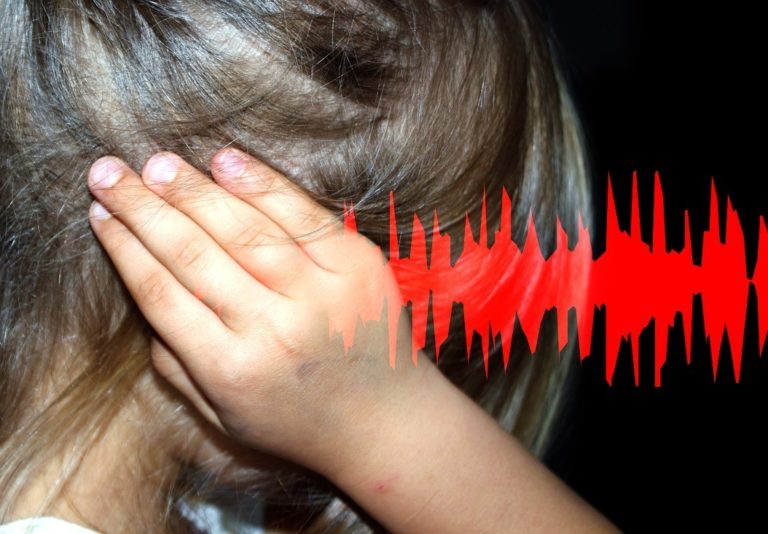
Tinnitus is a serious issue for those who suffer from the condition. Earwax is a natural substance produced by the ear canal, which helps protect your ears from dust and bacteria. Earwax normally moves through the ear canal to the outside of your body. However, if you produce too much earwax or it becomes impacted in your ear canal, you may experience an accumulation of wax that can lead to various health problems.
What Is Tinnitus?
Tinnitus is the perception of sound when no actual external source is present. It can be a ringing, whistling, buzzing or hissing sound, which may be perceived in one or both ears. It can be continuous or intermittent and vary in loudness.
Tinnitus refers to chronic noises within your ears or head that aren’t caused by an outside source but originate from inside your body.
There are two main types: subjective tinnitus (which involves hearing sounds that aren’t there) and objective tinnitus (which involves hearing real sounds).
In subjective cases, patients describe what their symptoms sound like; hissing or humming noises along with other sounds such as buzzing bees or waterfalls running nearby while falling asleep at night or even while waking up first thing in the morning!
In objective cases, patients will be able to hear real sounds that they can’t explain. This is what makes it harder for doctors to pinpoint the cause of the tinnitus and treat it effectively.
What Causes Tinnitus?
Tinnitus can have a lot of causes. Some of the most common include exposure to loud noises, genetics, age, anatomical abnormalities in your ear (like an extra eardrum), brain injury or tumor growth. The most common cause of tinnitus is exposure to loud noises. It can damage your hearing if your ears are exposed to extremely loud noises, like a concert or fireworks. This can lead to tinnitus symptoms in one or both ears.
Ear infections can also cause tinnitus symptoms. If you have an ear infection, your body releases fluid into the middle ear space. This fluid can put pressure on the structures of your inner ear and cause damage, making it difficult for them to work properly.
Antibiotics or anti-inflammatory medications like ibuprofen and aspirin could also increase your tinnitus risk. Medications like these increase your blood pressure which may contribute to certain types of tinnitus.
What is earwax?
Earwax is a natural substance that protects and lubricates the ear canal. It is made in the outer ear canal, and it moves toward the opening of your ear. The middle ear contains no glands to produce its wax, so it relies on this external layer for protection against bacteria and dust particles that would otherwise damage sensitive tissues in your inner ear.
What are the causes of earwax build-up?
Earwax build-up is a common condition, affecting up to 50 percent of the population. It’s usually related to age. As you get older, there is less water in your ear canal, and more debris, including earwax, gets trapped inside.
Genetics affects how much earwax you produce and whether or not it gets stuck in your ears.
Illness can also play a role in causing excessive buildup of earwax.
Stress can sometimes cause problems with getting rid of earwax from the ears: A study found that people who were stressed had slower drainage than those who weren’t.
Medications like aspirin have also been linked to increased production of cerumen.
Smoking has been shown to increase levels of secretions relative to non-smokers, including mucus production and secretion rates.
Can excess earwax cause tinnitus?
You might be surprised to learn that excess earwax buildup can cause tinnitus. But it can, and it does.
While your ears will naturally produce some wax as part of their overall self-cleaning process, too much wax build-up can cause several symptoms, including bothersome ringing.
So if you’re suffering from this symptom, what should you do?
It’s important to avoid overusing cotton swabs or other objects that push out earwax because they may be able to scratch and irritate the skin on the outer part of your ear canal. This irritation can lead further into an infection that causes swelling and inflammation inside the canal itself (which is more likely than not caused by excess buildup due to improper cleaning). Moreover, any damage done by these tools could create enough pressure within your head that it causes symptoms like ringing or buzzing noises when nothing else appears wrong with them!
How to remove excess earwax?
There are several ways to remove excess ear wax. One method involves using the cotton swabs.
To use this method, gently insert the swab into your ear canal and sweep it around in a circular motion until you feel resistance—this is the wax plug.
Rotate the swab clockwise while applying gentle pressure, then pull upwards to remove as much of the plug as possible.
See your doctor or optometrist if you’re having trouble doing this on your own; they’ll have special tools for removing blockages without traumatizing delicate tissues inside your head.
After you’ve tried a cotton swab but still haven’t managed to clear out all of your ear canal’s gunk,
try using an equal mix of water and hydrogen peroxide instead. It sounds counterintuitive but works well at breaking down even stubborn pieces of debris stuck inside our ears! Just be sure not to go overboard, though: too much hydrogen peroxide can cause irritation or even burns if it gets into other parts of your body aside from being swallowed accidentally during ingestion/swallowing foodstuffs made without proper sanitization procedures…
Treatment for Tinnitus: How Is Tinnitus Treated?
Tinnitus can be treated with various methods.
- Hearing aids are often the first treatment option for people with tinnitus, as they can help mask the ringing sounds you hear and make it more difficult for you to focus on them.
- Earplugs or earmuffs, which help block out sound from outside sources and reduce your overall auditory stimulation, may also help manage your tinnitus symptoms.
- Sound therapy can be another helpful tool for those looking to manage their tinnitus symptoms. This type of therapy uses special sounds designed to block out unwanted noises.
- Sound therapy is often used alongside other treatments, such as hearing aids and earplugs, because it doesn’t address any underlying causes of the disorder; however, studies show that combining these methods shows great results!
Will tinnitus go away after removing earwax?
While it’s possible for the ringing in your ears to go away after removing earwax, it’s not common. Tinnitus is often caused by damage to the inner ear or hearing system. This damage can be caused by injury, loud noises and aging.
How do you stop the ringing in your ears?
There are many different ways to stop the ringing in your ears. You can try hearing aids, sound therapy or other methods; however, many patients see considerable improvement with treatment.
Conclusion: Can earwax cause tinnitus?
Earwax can cause some forms of tinnitus.
Earwax can cause some forms of tinnitus, but there are ways to remove it and prevent buildup.
There are many other causes, including age-related hearing loss and exposure to noises.
While it’s not common, some people find their tinnitus due to excess earwax buildup in the ear canal.
Ear wax removal is key to avoiding this problem and keeping your ears clean.
If you’re worried about your earwax and tinnitus; talk to your doctor about what treatment options are available for you!
Consult an audiologist or otolaryngologist who can remove any wax buildup safely and effectively with equipment such as a curette, an irrigation syringe or a neodymium magnet.



